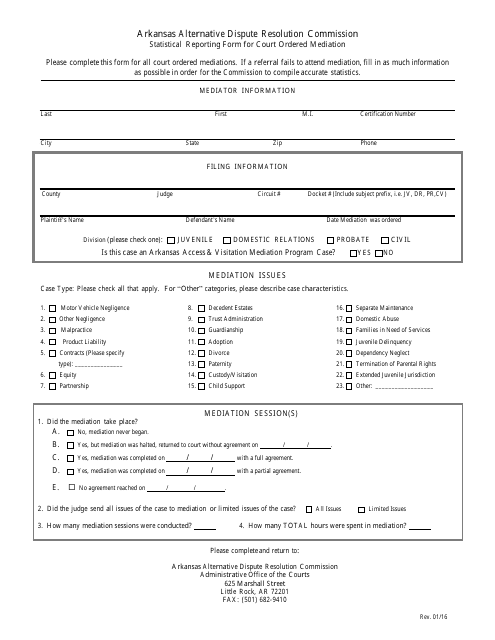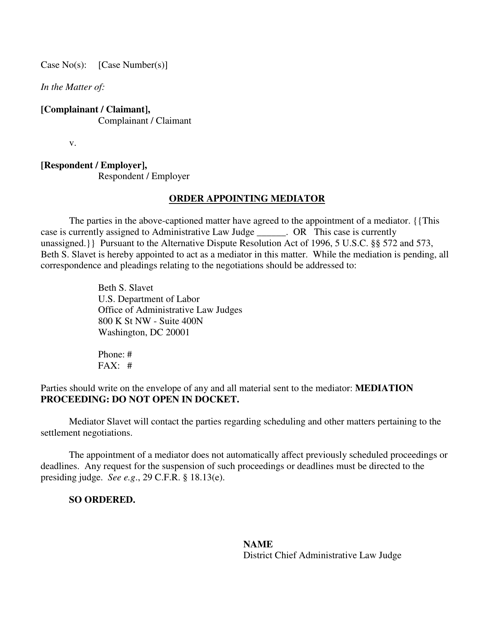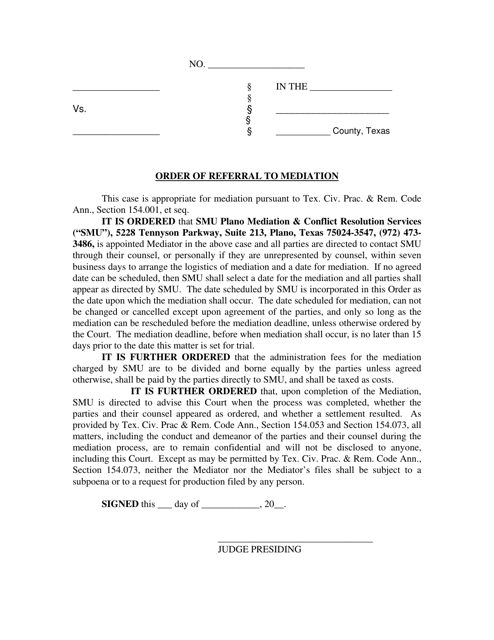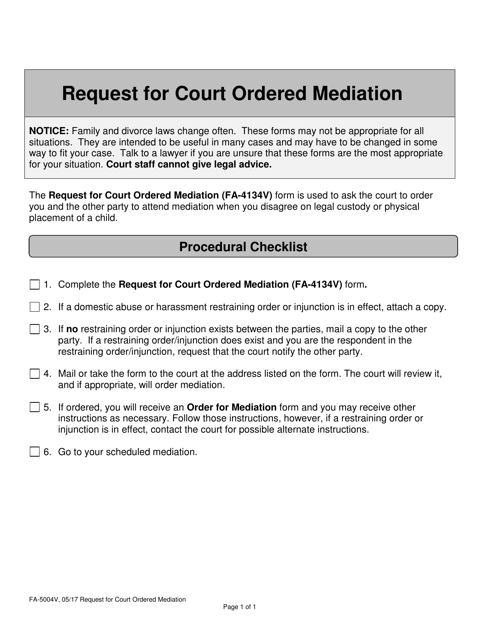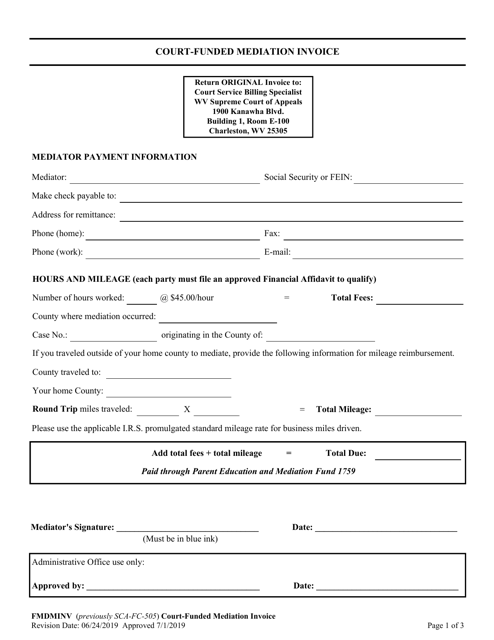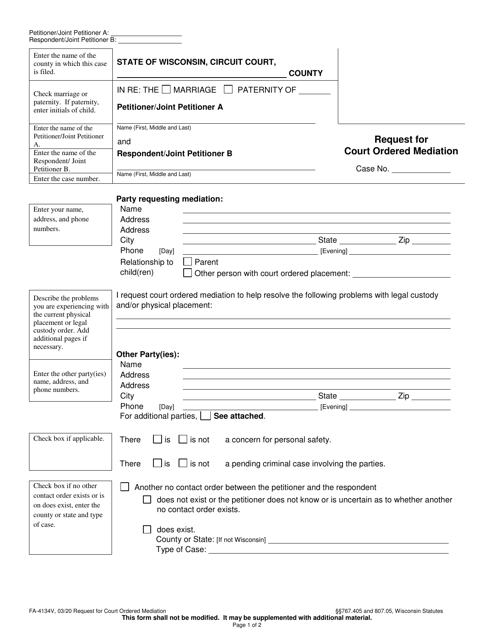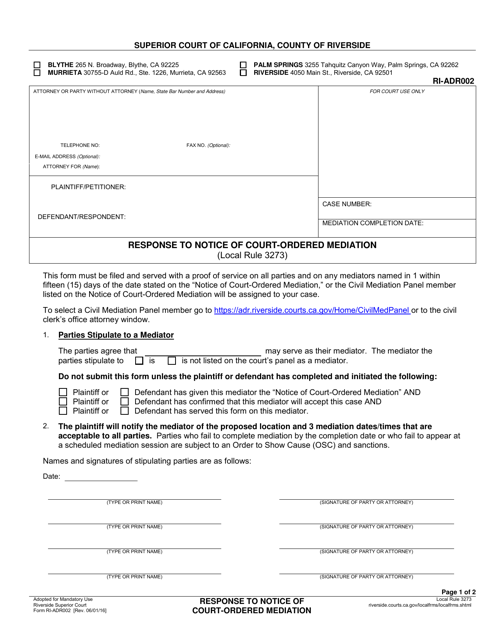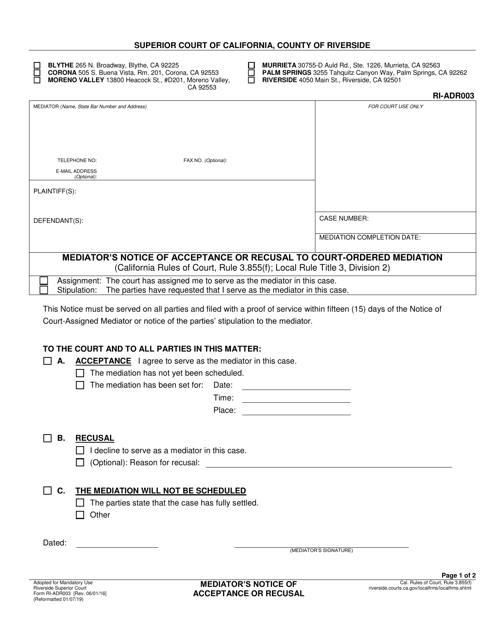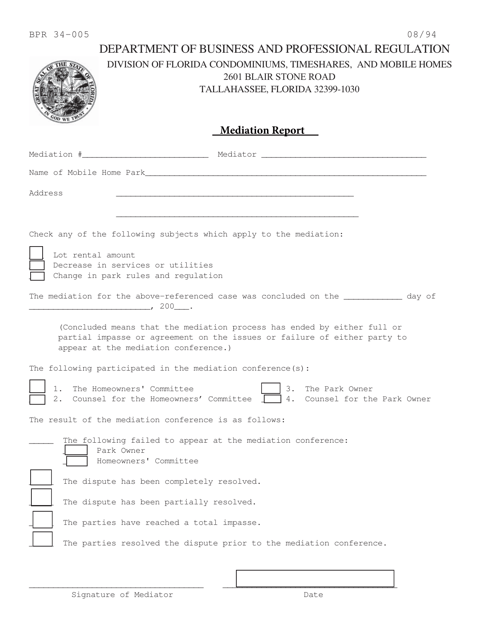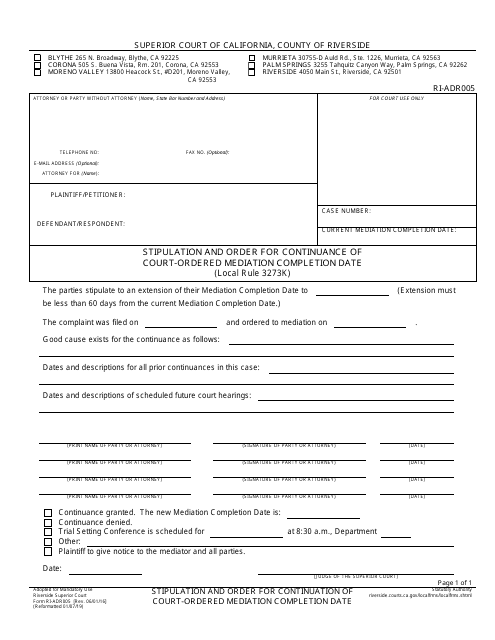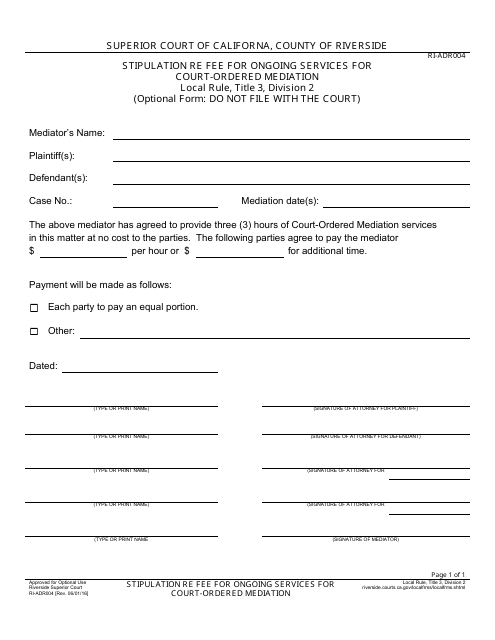Court Ordered Mediation Templates
Court-Ordered Mediation: Facilitating Resolutions Through Mediation
In legal proceedings, court-ordered mediation plays a crucial role in promoting effective dispute resolution. Also known as court-ordered alternative dispute resolution (ADR), court-ordered mediation provides parties with an opportunity to resolve conflicts outside the courtroom. This process involves the presence of a neutral third-party mediator who assists in facilitating open and constructive communication between the parties involved.
Court-ordered mediation helps streamline the legal process, minimize litigation costs, and provide a more efficient path to resolving disputes. By participating in court-ordered mediation, parties can actively engage in negotiating and reaching mutually agreeable solutions. The mediation process empowers individuals to have a direct impact on the outcome of their case, allowing for more tailored and satisfying resolutions.
Through court-ordered mediation, parties can benefit from a confidential and collaborative environment that fosters open dialogue and creative problem-solving. It offers a forum where emotions can be expressed, concerns can be addressed, and compromises can be reached. By employing the assistance of a skilled mediator, parties can navigate complex legal issues and work toward reaching outcomes that meet their unique needs and interests.
The implementation of court-ordered mediation varies across jurisdictions, but it remains a widely recognized and effective method for resolving conflicts. Each state and county may have specific forms and processes in place to facilitate court-ordered mediation. From filling out statistical reporting forms to requesting mediation services, these documents are designed to ensure a smooth and cohesive mediation process.
When parties embrace court-ordered mediation, they demonstrate their commitment to finding amicable resolutions to their disputes. Rather than facing adversarial proceedings in the courtroom, they choose to engage in a more cooperative and constructive process. Court-ordered mediation promotes understanding, empathy, and collaboration, ultimately fostering a more harmonious and equitable society.
If you find yourself involved in a legal dispute, consider the benefits of court-ordered mediation. Explore the options available in your jurisdiction and take advantage of this alternative approach to conflict resolution. By embracing court-ordered mediation, you can actively participate in shaping the outcome of your case, working towards a mutually beneficial solution, and ultimately moving forward in a positive direction.
Documents:
11
This form is used for reporting statistical information related to court-ordered mediation in the state of Arkansas. It helps track and document mediation sessions and outcomes.
This document is used to officially appoint a mediator for a legal dispute resolution process. It outlines the details of the mediator's role and responsibilities in helping the parties involved reach a mutually agreeable solution.
This document is used for requesting mediation in Collin County, Texas. It outlines the steps involved in the process of referring a case to mediation.
This Form is used for requesting court-ordered mediation in the state of Wisconsin. It provides instructions on how to complete and submit the form.
This Form is used for submitting an invoice for court-funded mediation services in West Virginia.
This form is used for requesting court-ordered mediation in the state of Wisconsin.
This document is used for responding to a notice of court-ordered mediation in Riverside County, California.
This form is used for a mediator to notify the court of their acceptance or recusal to participate in court-ordered mediation in Riverside County, California.
This form is used for filing a Mediation Report in the state of Florida. It is used to document the outcome of a mediation process.
This form is used for requesting a continuation of the court-ordered mediation completion date in Riverside County, California.
This document is used for the County of Riverside, California to stipulate the fees for ongoing services in court-ordered mediation. It outlines the agreement between the parties involved in the mediation process.

